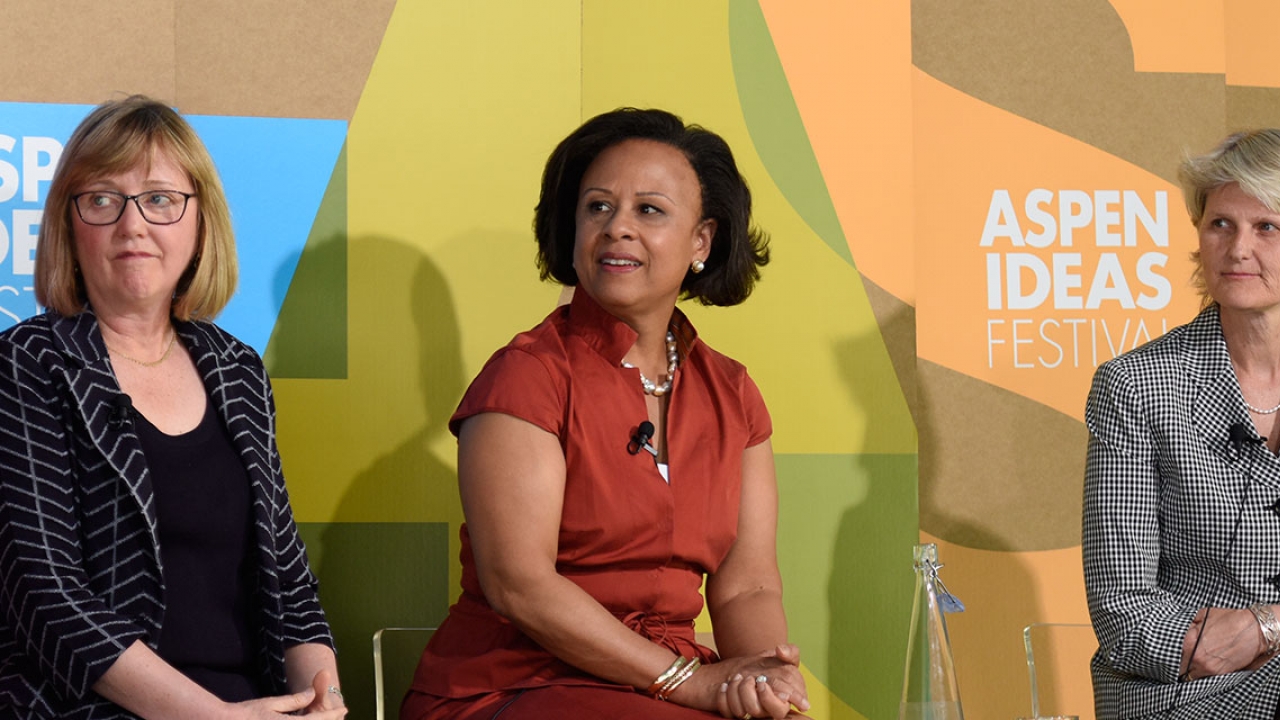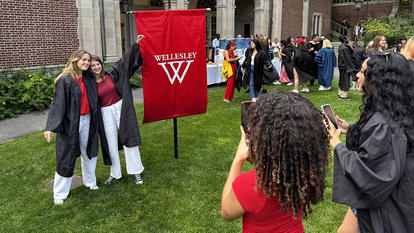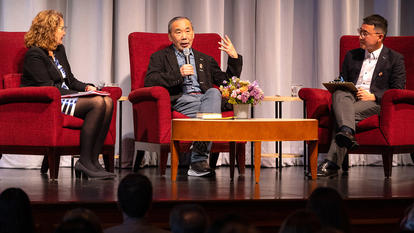Wellesley’s President Speaks at the 2017 Aspen Ideas Festival

Wellesley President Paula Johnson joined some 350 of the world’s most influential leaders and thinkers on June 24 at the 2017 Aspen Ideas Festival, a highly respected—and widely followed—forum where trailblazers across a spectrum of disciplines discuss the challenges facing the world. Johnson was a panelist for “Women Who Lead: Colleges Put Health Pioneers at the Helm” as part of the festival’s Spotlight Health 2017 program, along with Elizabeth Bradley, the incoming president of Vassar College, and Kathleen McCartney, president of Smith College. McCartney is an expert on child development and developmental psychology. Bradley is known for strengthening health care systems in this country and abroad. Johnson is an internationally recognized authority on women’s health and advancing the well-being of women. The three presidents discussed “what promotes success and what it takes for women to lead in health and education,” according to the festival’s program. They explored topics related to women’s leadership, the challenges women face in today’s world, and how best to prepare the next generation. Jackie Judd, special correspondent for PBS Newshour, moderated the panel.
In describing how she approaches the complexity of higher education and the role of the president, Johnson said she is grounded by the College’s “unity of mission,” knowing that whatever arises, Wellesley’s purpose is “to educate young women in the most powerful way to make their difference in the world.”
The panelists also talked about how to help young women reach their fullest potential. Johnson has expressed her commitment to approaching traditional educational goals not separate from but linked to supporting the health and wellness of the whole person, and in an inclusive environment. “We have a responsibility to make sure our students are fully supported, that our students are graduating with the best health, both physical and emotional, that they can,” she said. For Johnson, this level of support is crucial for students to be able to make the most of their intellectual strengths; learning how to thrive is a critical part of their transformation over the course of four years in college. “This is integral to what we are as a college,” she said.
Johnson has presented previously at the festival, including in 2015 and 2016.
Around 3,000 people attend the annual event, which was launched in 2005, on the Aspen Institute’s campus in Aspen, Colo.



